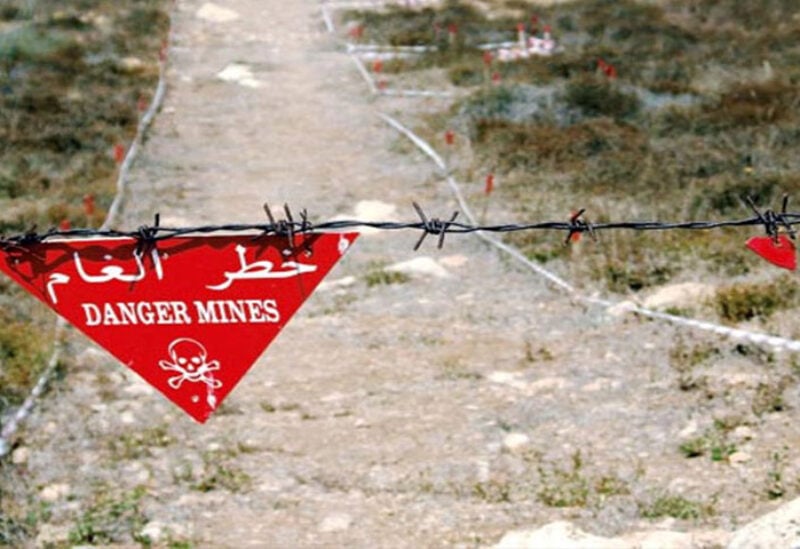
Landmines in Lebanon
As authorities continue to find and extract land mines left behind from the Lebanese Civil War, a new wave of explosives has entered the country’s border due to a natural disaster.
The Lebanese Armed Forces on Wednesday said landmines planted along the Lebanese-Syrian border have washed into Lebanese territories due to winter flooding.
“Landmines planted on the Lebanese-Syrian borders are a result of the Syrian conflict,” a Lebanese military source told Arab News.
“As these mines drifted into Lebanese territories, it has become harder for the Lebanese army to clear them. Multiple accidents have been recorded this year, which has injured many who were not familiar with the nature of the foreign objects they found.”
The source said a majority of accidents occurred in the northern border region due to the flooding and soil erosion caused by the winter floods. All injuries were on Lebanese soil.
The army command issued a statement, which warned “ammunition comes in different shapes and sizes and may be camouflaged in different ways and dispersed randomly.”
Areas that are potentially contaminated with landmines are not marked with signs or barbed wire to warn people yet. The army command has urged citizens to avoid suspicious areas, stay on paved roads, and not to approach or tamper with any object or unexploded ordnance.
The Lebanese Mine Action Center (LMAC), which is part of the Lebanese Armed Forces, has been carrying out the Lebanese National Mine Action Program with support from the UN Development Program to cover shortfalls.
The LMAC aims to secure a safe country where civilians can walk and move freely without the threat of landmines by the year 2025. The center’s mission focuses on areas in south Lebanon, which is the most contaminated area with landmines and suspicious objects.
“The closer we get to a minefield in the remote areas of south Lebanon, the more red-painted stones we see,” United Nations Interim Force in Lebanon (UNIFIL) Officer Captain Yang Dong from China said.
“The red stones remind us of safe and unsafe areas. They remind us not to step around. If there are red stones nearby, it is dangerous and there could be some mines there.”
In Jan. 2020, the UNIFIL’s scope of work increased with the signing of a new agreement with the LMAC while the country marked International Day for Mine Awareness and Assistance in Mine Action on April 4.
Over the past five years, the UNIFIL’s demining efforts have cleared nearly 5 million square meters of mine-infested land in south Lebanon. It has also destroyed more than 43,500 landmines, bombs, and unexploded ordnances.
The threat of landmines is real and spreading awareness is vital for the Lebanese people.
Since 1975, landmines and unexploded materials left behind from the Lebanese Civil War have led to 3,847 deaths and injuries. The most casualties were recorded in 2006 when 209 people were killed or injured, including 40 children under the age of 12.